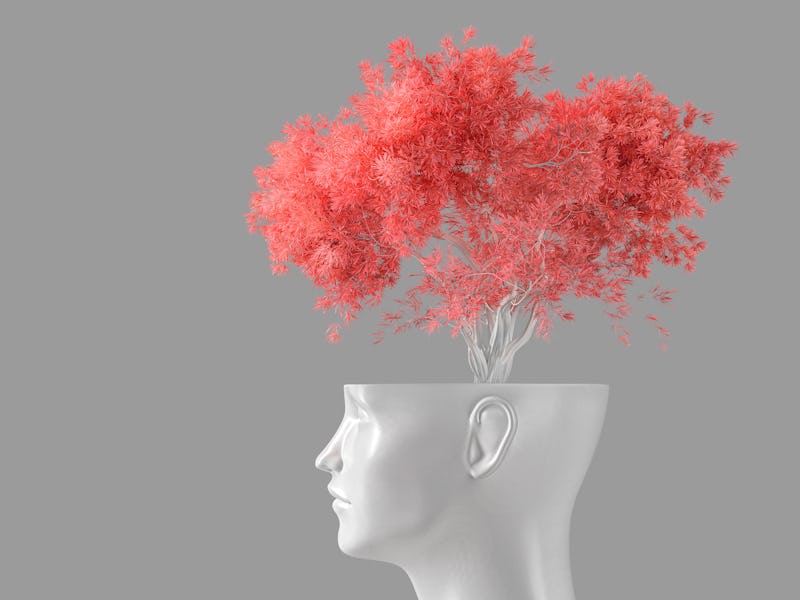Is gratitude good for you? Seven beneficial side-effects
Plus: Could carbon dioxide power human ambitions on the Moon?

Thanksgiving does not come naturally to me, but there is one holiday tradition I can get down with: Showing my gratitude.
I don’t have any of the family weirdness, unpleasant memories, sports rivalries, or other typical reasons which cause many Americans to find Thanksgiving a drag — indeed, I’m not American. But I am grateful for many things, and this feeling of gratitude — as well as the act of expressing it — is not only good for my soul but also my brain health. So good, in fact, you may want to keep it up all year long.
I’m Claire Cameron, an editor at Inverse. Embrace the American tradition of gorging on too much food and let us enrich your Thursday. Keep scrolling to learn about the beneficial side effects of gratitude, how to kickstart the feeling, and so much more.
This is an adapted version of the Inverse Daily newsletter for Thursday, November 25, 2021. Subscribe for free and earn rewards for reading every day in your inbox. ✉️
Gratitude 101: A scientific primer on a warm and fuzzy feeling — We dug into the Inverse archives to bring you the science behind why gratitude is a worthy daily practice:
- Unsure where to start? Here are four steps to kickstart gratitude
- Challenging times show why gratitude can be an essential mind hack
- Gratitude isn’t just beneficial for mental health. It matters for physical health, too
And if you aren’t convinced yet...
Thank YOU.
7 ways feeling thankful boosts mental and physical health — Giving thanks is an intentional act. Science shows that making this practice part of your lifestyle can improve mental and physical health.
Giving thanks, or showing gratitude, isn’t something that starts and ends with a holiday. Rather, incorporating regular gratitude practices into your lifestyle can provide a significant boost to your mental and physical health.
For example, a study from 2013 found that people who engaged in gratitude practices reported making healthier choices in their lives — such as eating well, avoiding excess drinking, and socializing with friends.
Discover the 6 other benefits.
The irony.
Human life on the Moon could depend on a substance deadly to animals on Earth — Scientists have confirmed carbon dioxide cold traps on the Moon, which could be used as a valuable resource for a sustainable human presence.
In 2009, NASA’s Lunar Crater Observation and Sensing Satellite detected carbon dioxide in a plume of material that erupted from the Moon’s Cabeus crater.
Scientists had always predicted that the Moon would have carbon dioxide cold traps, but the temperatures needed to be extremely cold in the regions where it would exist.
New data analysis reveals permanently shadowed areas near the Moon’s poles where temperatures would be low enough to sustain the carbon dioxide cold traps.
Carbon dioxide can act as an essential resource on the Moon. Astronauts could convert it into breathable oxygen or use the carbon into a solid form for building materials and other resources.
Go deeper: SpaceX HLS: Why NASA is taking a Starship to the Moon
Not so different, after all.
Look: Ancient teeth hint at a similarity between Neanderthal and human brains — Our ancient ancestors grew baby teeth just like us, and analyzing their dental remains gives researchers new insight into how quickly they developed into adults.
Tracing Neanderthals’ early years is tricky because there are so few fossils available to study. But looking at what we do have, researchers could help illuminate mysteries like how Neanderthals’ mental and physical capabilities compared to those of ancient humans.
We know that Neanderthals had baby teeth, just like humans.
These teeth can reveal how quickly Neanderthal children began eating solid food — a developmental milestone that correlates with a period of accelerated brain growth. But by studying the teeth, researchers believe there may be some key differences in our two species’ development.
Go deeper: Scientists role play as Neanderthals to discover a dietary secret
Before we go: My colleagues in the commerce department have put together a list of 95 shockingly good early Black Friday deals on Amazon you don’t want to miss.
Happy birthday, Etta.
- About the newsletter: Do you think it can be improved? Have a story idea? Want to share a story about the time you met an astronaut? Send those thoughts and more to newsletter@inverse.com.
- On this day: Karl Benz, a pioneer in the automobile industry, was born in 1844.
- Song of the Day: “I’d rather go blind,” by Etta James, who was born on this day.